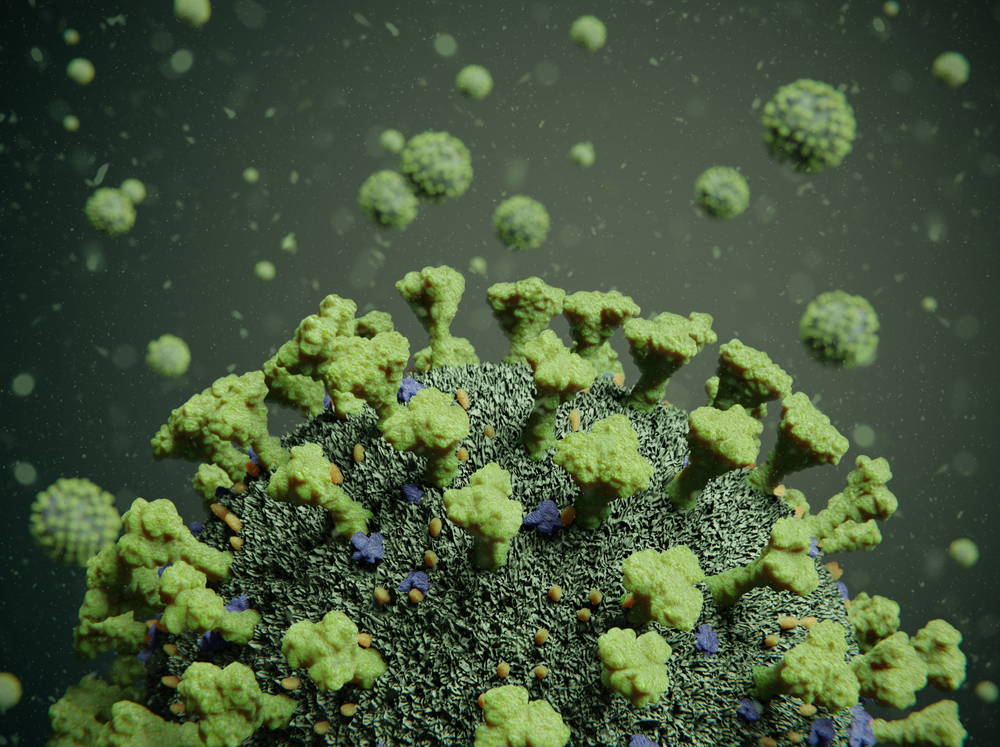SARS CORONAVIRUS NUCLEOPROTEIN (C-TERM)
SARS Coronavirus Nucleoprotein (C-Term) is a recombinant protein (also known as the nucleocapsid core antigen) comprising amino acids 340-390 immunodominant regions. it is manufactured in E. coli, with Immunoreactive with sera from SARS-infected individuals with minimum specificity problems.
PRODUCT DETAILS – SARS CORONAVIRUS NUCLEOPROTEIN C-TERM
- SARS Coronavirus Nucleoprotein (C-Term).
- Recombinant protein manufactured in E. coli.
- Contains Nucleocapsid core protein, 340-390 amino acids immunodominant regions.
- Purity >95% as determined by 10% PAGE (Coomassie staining).
- For use in ELISA and other immunoassays. Immunoreactive with sera from SARS-infected individuals with minimum specificity problems.
BACKGROUND
Severe acute respiratory syndrome-associated coronavirus (SARS-CoV) is the virus that causes severe acute respiratory syndrome (SARS); it spreads rapidly and has a high case-mortality rate. It causes an often-severe illness marked initially by systemic symptoms of muscle pain, headache, and fever, followed in 2–14 days by the onset of respiratory symptoms, mainly cough, dyspnea, and pneumonia. The SARS coronavirus is one of several viruses identified by WHO as a likely cause of a future epidemic.
SARS-CoV is enveloped, positive-sense, ssRNA virus with a genome 29,727 nucleotides in length, and containing 11 open reading frames, making it one of the largest among RNA viruses. The viruses have large pleomorphic spherical particles with bulbous surface projections that form a corona around particles. The envelope of the virus contains lipid and appears to consist of a distinct pair of electron dense shells. The internal component of the shell is a single-stranded helical ribonucleoprotein. There are also long surface projections that protrude from the lipid envelope. The sizes of these particles are about 80–90 nm.
SARS-Cov genome organization is similar to that of other coronaviruses; there are four structural proteins including the surface spike (S) glycoprotein, the small membrane (M) protein, the envelope (E) glycoprotein and the nucleocapsid (N) protein. The nucleocapsid (N) protein of severe acute respiratory syndrome-coronavirus (SARS-CoV) is a major virion structural protein (Lin et al., 2003). The N phosphoprotein packages the viral genome into a helical ribonucleocapsid (RNP) and plays a fundamental role during viral self-assembly. The N protein has also been suggested to be involved in other important functions in the viral life cycle. Additionally, it is highly conserved, immunogenic, and abundantly expressed during infection which make it a suitable candidate for raising neutralizing antibodies and diagnostic applications (Chang et al., 2014).
REFERENCES
- Chang et al. (2014). The SARS coronavirus nucleocapsid protein – Forms and functions. Antiviral Research. Volume 103, Pages 39-50.
- Lin et al. (2003). Identification of an epitope of SARS-coronavirus nucleocapsid protein. Cell Research volume 13, pages141–145.

